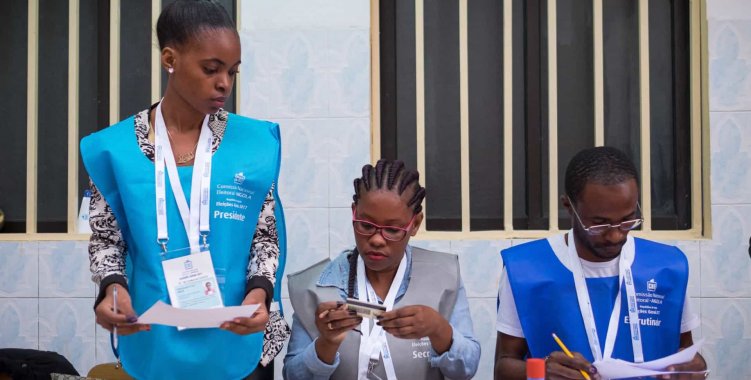The executive met with political parties with parliamentary seats to address issues related to the ongoing electoral process, namely the clarification of doubts about the unofficial electoral registration, which has already ended, for the general elections next August.
At the end of the meeting, in statements to the media, the secretary general of the National Union for the Total Independence of Angola (UNITA), Álvaro Chikwamanga, considered the meeting to be fruitful, and that the meetings should continue "to dispel misunderstandings, above all to eliminate all possible suspicions and mistrust in the process".
Álvaro Chikwamanga said that at the meeting questions were clarified that "are not" as they were "imagining", the specific case being the provisional publication of the lists.
"We can understand today that the executive will not post the lists, he will simply continue to publish through electronic means and our concern remains that many citizens will certainly not have access to these electronic means", he said.
According to the secretary general of the largest opposition party, the executive made available three mechanisms for consultation, namely by electronic means, by free phone call and by visiting the administrations.
"The executive is forcing citizens who want to consult their data to use three mechanisms: either they go to the administration, which I have no doubt that many people will want to funnel into administrations again, make queues simply to check if their data is there or not", he said, highlighting the fact that "many people do not have access to the Internet".
In view of the challenges listed, Álvaro Chikwamanga continued, the parties suggested to the Government that "despite having made these three means available to the citizen, they should still allow the lists to be fixed".
"It's a mechanism that seems to be archaic, but let's look at our reality," he admitted, asking for consideration from the executive.
In turn, the leader of the Broad Convergence for the Salvation of Angola – Electoral Coalition (CASA-CE), Manuel Fernandes, said that the parties left the meeting "clearer about what the process was".
Regarding the executive's reading on the issue of disseminating data on voters, the leader of the second largest political force in the opposition considered that "the understanding is that the administration should make life easier for the citizen".
"However, the three mechanisms that were presented by the executive, in our view, do not satisfy and do not respond to our great concern, which is to make life easier for citizens, to make sure if their data actually appear or not in the database of greater citizens", he underlined, adding that the key "is dialogue and consultation".
In a press conference, the Minister of State and head of the Civil House of the President of the Republic, Adão de Almeida, who led the meeting with the political parties with parliamentary seats for the executive, said that "this matter has been sufficiently clarified today and there is no room for misunderstandings".
"Firstly, because there is no breach of any law in this area and here in this area the requirement is being based on a law that is no longer in force", said Adão de Almeida, stressing that in the previous law there was this requirement.
The voter registration process abroad was another question raised at the meeting by the parties, as the leader of the National Liberation Front of Angola (FNLA) Nimi to Nsimbi focused, considering the number of 18,000 registered voters "very little".
In response, the Minister of Territory Administration and State Reform, Marcy Lopes, made a positive assessment of the process in the diaspora, informing that it was carried out in only 12 countries and affected by several reasons, one of them being the restrictions imposed by the States due to covid-19.
"China at the time required a quarantine of approximately 21 days, plus eight, which amounted to almost 30 days of quarantine alone, obviously that moving teams to register voters in China and other countries with similar measures would be an exercise almost without results", he said.







